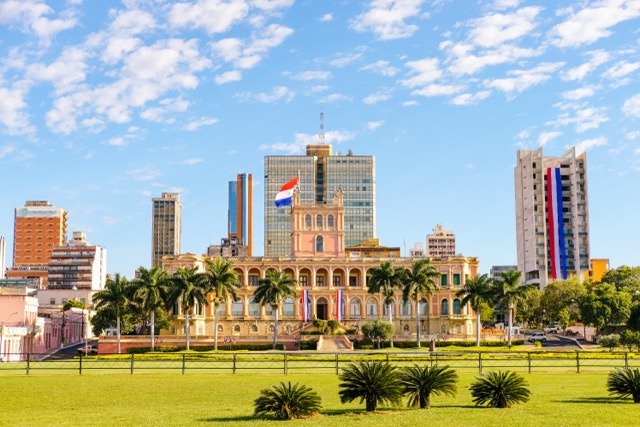Portugal, Greece, or Malta? Comparing the Best EU Golden Visas in 2025
Introduction: Choosing the Right EU Golden Visa in a Changing Landscape
Europe continues to offer attractive migration pathways for global investors, families, and entrepreneurs. Among these, EU residency by investment—often called “golden visas”—remains one of the most effective ways to access the European lifestyle, business environment, and long-term citizenship benefits. But in 2025, the landscape looks different than it did just a few years ago.
Portugal, once the gold standard for golden visas, has removed real estate and bank deposit options from its eligibility criteria. Malta, long known for its fast-track citizenship program, faces growing EU scrutiny over its approach. Meanwhile, Greece is doubling down on property investment, with tiered thresholds depending on location. For investors trying to make sense of the market, a clear EU golden visa comparison—especially between Portugal vs Greece golden visa programs and Malta’s evolving structure—is more important than ever.
Portugal: A Post-Property Pivot with Long-Term Potential
For over a decade, Portugal was one of the most popular golden visa destinations in Europe. Its flexible real estate investment requirements and minimal stay obligations made it ideal for globally mobile individuals. But in late 2023, Portugal enacted sweeping reforms to address housing shortages and meet EU pressure for reform.
As of 2025, the Portuguese golden visa no longer accepts real estate purchases or capital transfers as qualifying investments. Instead, eligible applicants must now invest at least €500,000 in regulated private equity or venture capital funds that directly support Portuguese businesses. Other options include a €250,000 donation to cultural preservation projects or a €500,000 contribution to scientific research and development.
Importantly, Portugal has retained its low minimum stay requirement—just seven days per year—and continues to offer a clear pathway to citizenship after five years of legal residency. Applicants must demonstrate basic Portuguese language skills and evidence of ties to the country, but the physical presence rules remain among the most lenient in Europe.
Despite the loss of real estate as a qualifying route, Portugal’s golden visa remains a strong choice for investors focused on long-term EU access and citizenship. Its robust fund market and stable legal framework provide confidence for those looking to secure European residency through investment.
Greece: Property-Friendly, Fast, and Flexible
In contrast to Portugal’s fund-focused pivot, Greece’s golden visa program continues to welcome real estate investors with open arms. In fact, Greece has become one of the last major EU countries to offer straightforward property investment as a residency route—making it highly attractive to investors seeking both lifestyle and rental income.
As of 2024, the Greek government has implemented a two-tier structure. A minimum real estate investment of €250,000 remains available in most of the country. However, for high-demand areas such as central Athens, Thessaloniki, Mykonos, and Santorini, the minimum has been raised to €500,000. This aims to balance foreign investment with local housing needs while still offering flexibility across the country.
One of the most notable advantages of Greece’s golden visa is the lack of a physical residency requirement. Investors are not obligated to spend any specific number of days in Greece each year to maintain their status, making it especially appealing to those who plan to live elsewhere but want a base in the EU.
Processing times are among the fastest in Europe, with most applications approved in three to six months. The visa is valid for five years and renewable as long as the qualifying property is retained. A path to Greek citizenship is available after seven years of continuous residency, but active presence and integration (including language proficiency and knowledge of Greek culture) are required.
Greece is ideal for investors who want direct property ownership and quick, low-maintenance EU residency—especially those not immediately focused on citizenship.
Malta: Lifetime Residency, With Caution Around Citizenship
Malta offers two separate residency-by-investment tracks: a permanent residency program (MPRP) and a separate citizenship program for individuals providing exceptional services through investment. While the permanent residency route remains stable and widely accepted, Malta’s fast-track citizenship scheme has come under increasing scrutiny from the European Commission.
The MPRP allows investors to obtain lifetime residency rights in Malta through a combination of government contributions and real estate commitments. Typically, this includes a non-refundable contribution of €100,000–€150,000, along with either the purchase of property valued at €300,000 or more, or a five-year rental contract with an annual lease of at least €10,000.
Unlike Portugal or Greece, Malta’s program does not rely on fund investment or job creation. The emphasis is instead on thorough due diligence and stable long-term residence. Applicants are not required to live in Malta, but some presence is encouraged for naturalization eligibility later.
Malta’s citizenship route, which can grant a passport in as little as 12–36 months following a larger financial contribution, remains controversial. Several EU countries and institutions have challenged its legality, arguing that citizenship cannot be bought without genuine ties to the country. As a result, banks and global compliance institutions have become cautious about fast-track Maltese passports.
For most investors, the MPRP remains the safer route. It offers access to the Schengen Area, long-term PR status, and inclusion of family members—including parents and grandparents—without the political complications of fast-track citizenship.
Portugal vs Greece vs Malta: Which Golden Visa Wins in 2025?
Choosing between Portugal, Greece, and Malta depends largely on your priorities: are you seeking real estate ownership, fund-based growth, or permanent residency with low maintenance?
- Portugal is best suited for long-term investors who prefer fund diversification and eventual EU citizenship with minimal relocation.
- Greece offers the simplest and fastest route through property investment and remains attractive to those prioritizing flexibility and lifestyle.
- Malta provides lifetime PR with excellent services, especially for multigenerational families, but its citizenship route carries more political risk.
Processing times are currently fastest in Greece, followed by Malta, then Portugal. All three allow family inclusion and Schengen travel, but only Portugal and Malta offer clearly structured long-term naturalization pathways without extensive stay requirements.
For further details and updated comparisons, see our Golden Visa Comparison, or explore other programs such as Canada Business Immigration or our full EB‑5 Visa Guide if you’re considering non-EU destinations.















